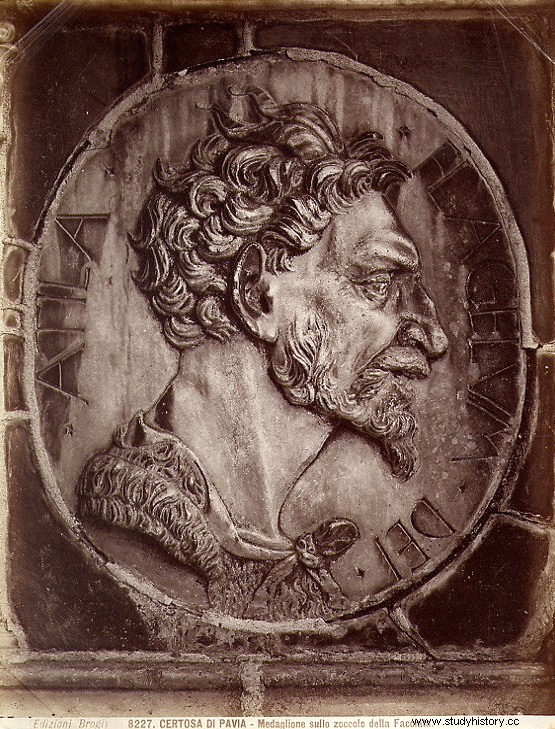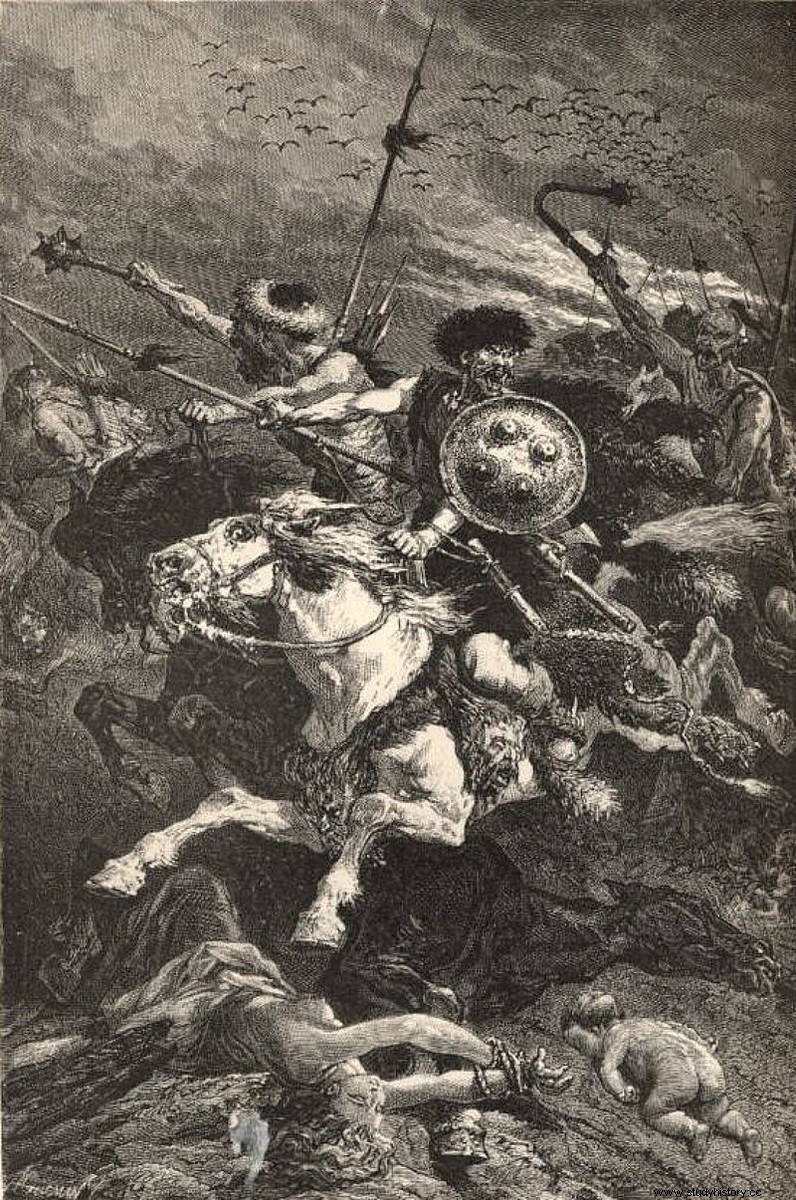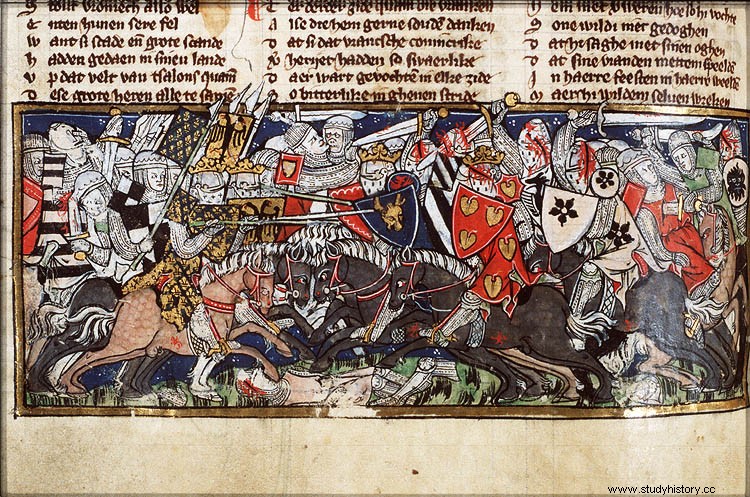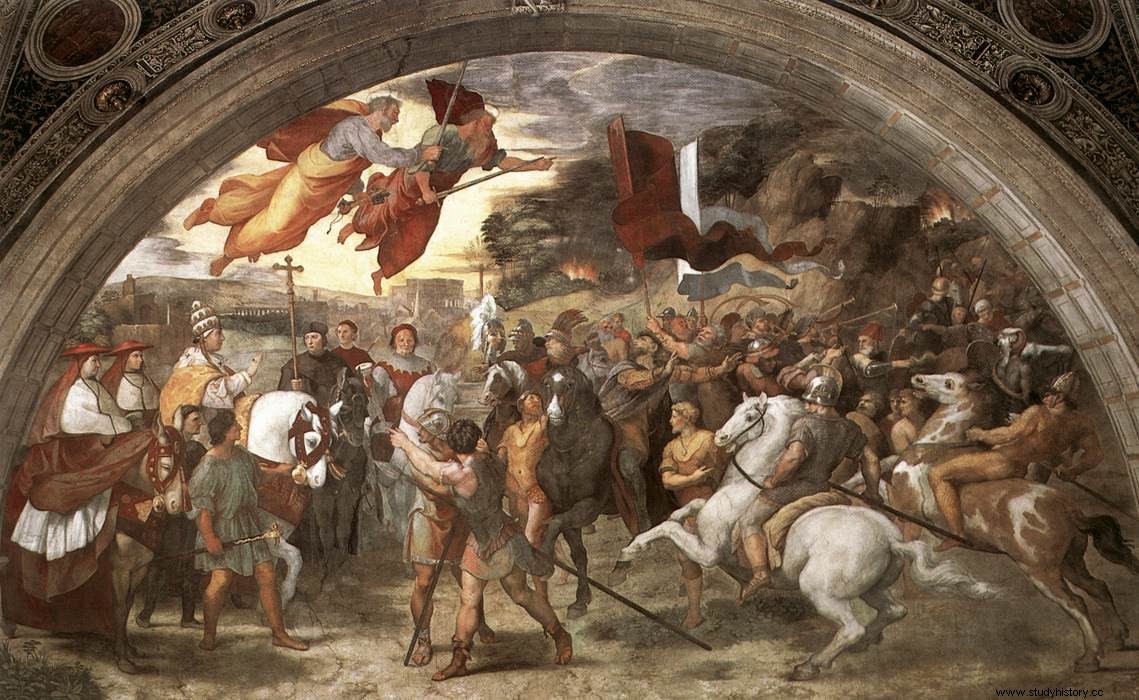
The Germanic migration caused the destruction of Rome, but the Germanic migration began with the oppression of the Huns, a Mongolic nomad.
The Germanic people felt that it would be much easier to deal with the weakening Latin people than to fight the ferocious and powerful Huns.
Among such ferocious races, the Huns, there is a person who is said to be the Great King.
Attila.
This time, let's take a look at Attila, who appeared in many later creations and dropped Europe to the depths of horror!
Attila the Great

Perhaps Attila the Great and we Japanese are of the same ethnic group with the same ancestors.
At this time, stirrups were not yet developed, and it took considerable training to become a cavalry soldier. The Mongolic nomads are nomadic people and have been accustomed to handling horses since they have been straddling horses since they were small. Therefore, it boasts a very high fighting power and will dominate the world with overwhelming power in each era.
The oppression of the Huns in the 4th century AD is probably the first example.
One theory is that the Xiongnu who were in Mongolia during the Han dynasty moved and were called the Huns in Europe.
Attila was born as the nephew of the Huns chief Rua.
When King Rua died, he and his brother Breda jointly ruled the Huns, first boarding the Byzantine Empire.
* Breda seems to have died in 445 AD.
Byzantine Emperor Theodosius II sends an envoy to Attila. It seems that the content was to return the deserters who had escaped from the Huns.
The envoy goes to the Huns tent with the deserters, where he witnesses the execution of the Huns.
The deserters were put in a position to lie down on the ground, and when they were made to hang a cloth on it, the Huns soldiers on horseback went back and forth with cheers.
Since the same execution method was also used by the Mongolian army led by Genghis Khan, it seems that the Huns are of the same ethnic group as Mongols.
Most of the deserters executed at this time were of the Germanic people, and the Germanic people who lived in the Byzantine Empire were angry at this and set up a battle against the Huns. However, he was dismissed without becoming an opponent.
The feared Byzantine Empire pays the Huns a gold nugget and forms an alliance close to control.
The strongest nation in the world easily fell down on the Mongolian nomads.
From the Byzantine Empire, envoys were sent to Attila on a regular basis, and it seems that Christian priests were also included here, and Attila was also influenced by that.
According to the records of the priest at that time, Attila looked as follows.
"His short but sturdy physique. His face was dull yellow and his face was strangely flat."
It is exactly the characteristic of Mongoloid as seen by Europeans.
In 450 AD, Byzantine Emperor Theodosius II died.
The next emperor after the incompetent emperor was Marcian, a relatively hawkish emperor. Marcian breaks his alliance with Attila and begins to build up his armament.
At the same time, there was a movement in the Western Roman Empire.
A princess named Honolia, the sister of the Roman emperor, applied for marriage to Attila.
There is a story in the later "Song of Bergen" that Gudrun after Siegfried's death marries Attila, but I think this is the origin.
The horse race is fast moving.
Attila immediately advanced his army to the territory of the Western Roman Empire.
It was the Western Roman Empire that was rushed. The emperor confined Honolia and refused Attila's offer, but Attila did not stop. He had begun to move to the Rhine in demand for the princess's identity.
Battle of the Catalaunum

The enemies of Rome were always the Persians and the Germanic peoples, but this time the Romans and the Germanic peoples joined hands.
Aetius, the de facto leader of Western Rome, joined forces with the Visigoths and Franks to meet Attila.
Attila besieged Orleans, but was blocked by a solid wall and moved his army to the Champagne region for battle.
The Allied Forces of the Western Roman, Germanic, and Gauls also turned their troops to the Champagne region, and the battle between the two troops began in Catalaunum.
The result seems to be that the Roman-Germanic Allied Forces won, with massive damage to both sides. It seems that the Roman side is exhausted so much that it will forgive the invasion of the Frankish kingdom, which is a Germanic tribe, into the Gaul region, and it will not even be possible to leave enough troops to pursue Attila. It was so exhausted.
Attila, on the other hand, was actually less exhausted because his army was organized by soldiers from the Burgundians and Ostrogoths.
As was the case with Genghis Khan later, the consumption was very low because the corps was formed by locally procured soldiers rather than Mongolian soldiers.
During the Punic Wars, Hannibal tried to do the same and failed, but the Mongolians took the wives and children as hostages, and the Mongolian soldiers did not fight and held their bows behind the army. This bow is aimed at locally procured soldiers, not enemies.
Even in the Mongol invasion in Japan, Mongolian soldiers did not participate in the war, and their corps was formed by the people of the Korean Peninsula.
Invasion of Italy

Attila headed for the Italian peninsula with his feet, as if there was no defeat of Catalaunum.
Aetius, who led the Western Roman Empire, had no power to meet it, and northern Italy was unilaterally overrun.
The Roman emperor was originally Imperator, the commander-in-chief, but the emperor no longer had such power.
Instead, it was Pope Leo I who dealt with the situation.
Leo I went to Attila and succeeded in repelling Attila.
According to the view of Christian history, Attila fell down before God, but in reality it seems that he paid a large amount of money.
Even from the Attila side, it would have been better to get only the money and return than to be rebelled strangely.
Whatever the contents, it was certain that the Pope had settled. No one was honoring the Roman emperor anymore. Instead, more people honored the Pope.
Attila's death
In 453 AD, Attila died suddenly. He said he suddenly spit blood and died in the middle of the feast.
After Attila's death, the Huns quickly lose their power.
The Huns have no law, only the orders of their leaders.
Personal evaluation of Attila
Looking at the defeat at Catalaunum, I don't think Attila's military talent was that great.
However, the power that brought the Huns together and plunged all over Europe into horror and turmoil was real, and I think he was a person with excellent ability, if not a hero.
However, it should be said that the policy was random from beginning to end, and although it was strong against local combat, it was not good at a global strategic perspective.
In particular, the invasion of the Gaul region before the Catalaunum was like giving an advantage to the enemy, and if he had just started the fight against the Byzantine Empire or the invasion of the Italian Peninsula, he might not have experienced defeat.
However, that unpredictability is the scary part of the Huns, and I'm scared because I don't know what to do next.
The Battle of the Catalaunum was also a battle between Mongoloid and Caucasian from a different point of view.
Caucasian, who felt afraid of Mongoloid during this battle and the invasion of the Mongolian army in the 13th century, chanted the Yellow Peril discourse, and the fear was greatest in World War II.
At the end of the east, Japan, a Mongoloid country, wages war against the world.
It must have been scary.
Returning to Attila, his impact was powerful, becoming the name of an asteroid, the motif of Attila composed by Verdi, frequent appearances in Hollywood movies, and the nickname of a strong human being. In a sense, it is very popular.
Attila has a strong image as a barbarian, but he is said to have been able to speak Germanic, Greek, and Latin, and is said to have been familiar with Greek and Roman culture.
People cannot be put together by power alone.
"King, must be willing to take on obligations and responsibilities"
This is a word left by Attila, but it may be that all of the man named Attila is packed here.
At the very least, it's different from the hundreds of leaders who don't take responsibility.
